The International Aspirin Foundation 2018 – Trial Updates & Scientific Awards attracted worldwide speakers.
Sign up to be part of the aspirin community and be the first to receive latest information.
Have something to say about aspirin?
Our biennial conference is a great opportunity to hear from leading biomedical researchers across a range of specialties. By coming together discuss the latest international data, we can enhance understanding, build stronger networks and inspire new ideas.
The International Aspirin Foundation 2018 – Trial Updates & Scientific Awards attracted worldwide speakers.
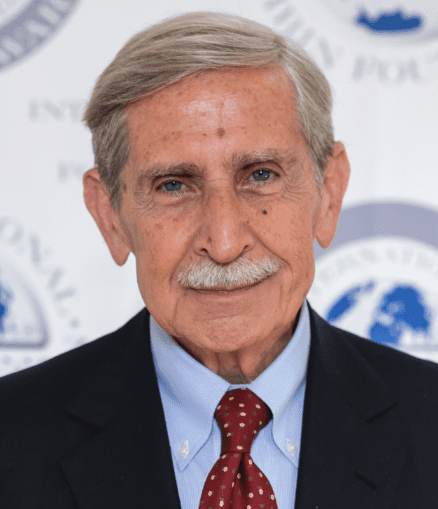
Carlo Patrono, MD, is Adjunct Professor of Pharmacology at the Catholic University School of Medicine in Rome, Italy and at the Perelman School of Medicine of the University of Pennsylvania in Philadelphia, USA. Dr. Patrono trained as a Postdoctoral Fellow in New York with the late Solomon Berson and Nobel Laureate Rosalyn Yalow.
Prof. Patrono’s main research interest is in the study of platelet activation and inhibition in atherothrombosis and colorectal cancer.
His research has characterized the human pharmacology of aspirin as an inhibitor of platelet COX-1 and provided the basis for the development of low-dose aspirin as an antithrombotic agent. During the past decade Prof. Patrono contributed to characterizing the human pharmacology of COX-2 inhibitors and evaluating their cardiovascular effects in different clinical settings.
He serves on the editorial board of the American Heart Association’s Journals, Circulation and Arteriosclerosis, Thrombosis, and Vascular Biology, and is a Section Editor of the Journal of the American College of Cardiology.
He has been elected to membership in scientific societies, including the Association of American Physicians, the Royal College of Physicians, the European Society of Cardiology, the Academia Europaea and the Accademia Nazionale dei Lincei.
He has received the Alexander B. Gutman award from the Mount Sinai School of Medicine, the Distinguished Award in Neuroscience from the Louisiana State University, the 1998 International Aspirin® Award from Bayer AG, the 2007 John Vane Award from the William Harvey Research Institute of the University of London, the 2011 Outstanding Achievement Award of the Eicosanoid Research Foundation, the 2013 Grand Prix Scientifique of the Institut de France, and the 2013 Lifetime Achievement Award of the European Association for Clinical Pharmacology and Therapeutics.
Prof. Patrono has published over 200 research articles with an h index of 86.

I am based at the UK Medical Research Council Clinical Trials Unit at University College London where I jointly lead the Cancer Group; and have a clinical consultant post at the Brighton and Sussex University Hospital.
I have a particular interest in gastro-oesophageal malignancy and have co-ordinated a series of trials and associated translational studies, and have led the investigation of the use of transdermal oestrogen in the treatment of prostate cancer.
I am the Chief Investigator of an international trial (Add-Aspirin) designed to assess the effect of aspirin as an additional adjuvant agent in several common solid tumours.
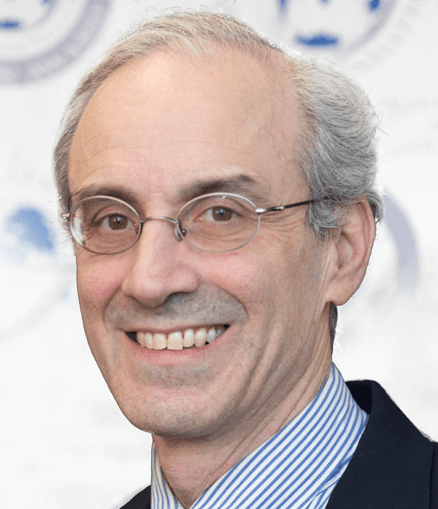
I am a chronic disease epidemiologist. I have a particular interest in the roles that individual lifestyle choices (diet, exercise, smoking), metabolic factors (obesity, high cholesterol, and hypertension), and biochemical and genetic markers play on the risk of coronary artery disease and stroke. Also of interest is the impact that vascular disease has on other organ systems, including cognitive dysfunction and renal disease.
Recently, I have initiated a number of research projects to investigate the diverse nature of atherosclerosis and I serve as the director of the Geriatric Research and Education Center (GRECC) at the VA Boston Healthcare System.
(http://researchfaculty.brighamandwomens.org/BRIProfile.aspx?id=1544)
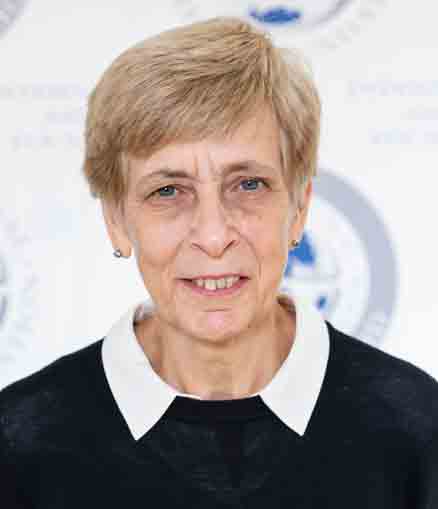
Professor of Clinical Trials and Epidemiology, and Honorary Consultant in Public Health Medicine at University of Oxford
Jane Armitage is Professor of Clinical Trials and Epidemiology and Honorary Consultant in Public Health Medicine. In addition, she is Director of Training and Career Development for the Nuffield Department of Population Health.
Jane joined the Clinical Trial Service Unit, now part of NDPH, in 1990 having qualified in clinical medicine in 1979. She worked in a variety of specialties over several years with particular experience in respiratory medicine, geriatrics and diabetes. Since joining CTSU she has co-ordinated and been chief investigator for a series of large-scale randomised clinical trials in cardiovascular disease including the 20,000 participant MRC/BHF Heart Protection Study, the 12,000 patient SEARCH and 25,000 HPS2-THRIVE study, which are trials of lipid modification in people with or at risk of vascular disease. In addition she is Chief Investigator for the BHF-supported ASCEND trial of aspirin and fish oils involving 15,000 people with diabetes. She collaborates with other epidemiologists and statisticians in NDPH on a variety of genetic and other risk factor studies based on the trial cohorts. She also continues a clinical role in the Lipid Clinic at the Oxford University Hospital NHS Trust and has a particular interest in the safety of statins. Jane’s main research interests are in lipids and the epidemiology of cardiovascular and other chronic diseases including osteoporosis.
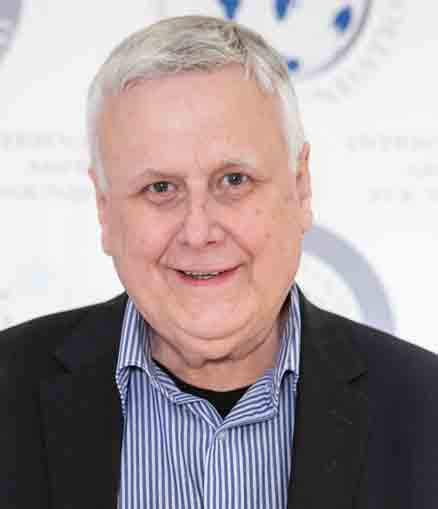
MBBS (Adelaide), MSc (London), PhD (Melbourne), FRACP, FAFPHM
Head of Department of Epidemiology and Preventive Medicine
Head of School of Public Health and Preventive Medicine
John graduated in Medicine from the University of Adelaide in 1971. After finishing his specialist training he completed a PhD in Clinical Pharmacology at Melbourne University in 1979 and was awarded a National Heart Foundation overseas postgraduate research scholarship to study epidemiology at the London School of Hygiene & Tropical Medicine. In 1986 John was appointed to the position of Chair of the Monash University Department of Social and Preventive Medicine at the Alfred Hospital.
Over the subsequent years, the Department of Epidemiology and Preventive Medicine (as it is now known) has become one of the major clinical and public research units in the country employing over 110 doctorally qualified staff and a total staff complement of 350. Currently there are 460 postgraduate students and 135 doctoral students. The department has evolved around a core of methodological skills in epidemiology, clinical medicine, biostatistics and data-management. Much of the work of the department now centres around large scale clinical trials, clinical registries and major occupational cohorts.
John’s research activities have involved the application of epidemiological methods to problems in clinical medicine and public health. Highlights include:
John has been involved in a variety of leadership roles including directorships of Austin Health, the Colonial Foundation, Orygen Youth Mental Health Research Institute, Alfred Health, the Australian Institute of Health & Welfare, the Metropolitan Ambulance Service, the Dunlop Medical Research Foundation, and Water Quality Research Australia. He was the Chair of the Victorian Public Health Research and Education Foundation from 2006-2008 and is currently the Scientific Secretary of the International Society of Cardiovascular Pharmacotherapy. John is also a member of the Alfred Research Council, the Austin Life Sciences Board, The Royal Melbourne Hospital Research Grants Committee, the Orygen Youth Mental Health Research Institute, the Red Cross Blood Transfusion, and the selection committee for the Victorian Premier’s Award for Health & Medical Research. He was awarded an AM in 2009 in recognition of services to Public Health.
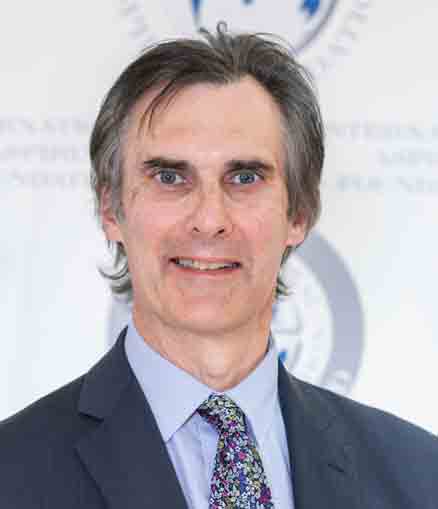
He has strong experience of chairing Board meetings such as Government Committees and Organisational Education and Training Committees. He has been on several HEI and NHS Boards. He has been a CEO and Trustee in several health organisations, regional councils and education charities. He has ensured that Board Members are fully engaged by a combination of emotional intelligence, matching skills with intended outputs, as well as periodic training for gaps in experience as they appear and has strong leadership skills and the ability to motivate and inspire others.
Janusz is an expert in reflux esophagitis, Barrett’s esophagus, acute medicine and clinical trials as well as in cancer prevention and health promotion. As a clinician, Jankowski has created centres of excellence in medicine including the Digestive Disease Centre, University Hospitals of Leicester 2002–12. He also set up Scotland’s first endoscopic surveillance service for Barrett’s esophagus (ESBE) between 1988–91 at Ninewells Hospital of Dundee and the first in London at Guy’s Hospital 1991-94.
Janusz has held Professorships at various universities including in London and Oxford, rising to Pro Vice Chancellor at University of Central Lancashire. He has been a Consultant Gastroenterologist and a lead mentor for university hospitals and has made a senior management contribution to the Research Excellence Framework (REF) 2014 as a clinical medicine (UoA1) lead. He has taken part in several studies including the isolation of label retaining cells (putative stem cells) in the oesophagus, identification of the genomic factors associated with the premalignant condition Barrett’s oesophagus. He has studied the use of aspirin and proton pump inhibitors in one of the largest randomized clinical trials to prevent cancer. He is a highly cited clinical academic with a h-index of over 65. He has over 200 publications of which 150 are peer reviewed papers including in Gastroenterology, The Lancet, Lancet Oncology, Nature, Nature Genetics, Nature Communications, New England Journal of Medicine and Proceedings of the National Academy of Sciences USA. He has been awarded NHS Clinical Excellence Awards, the Sir Francis Avery Jones Award (British Society of Gastroenterology), the James Black Senior Fellowship (University of Oxford) and Lectureship (Brasenose College) and the Sir James Black Professorship (Plymouth University).
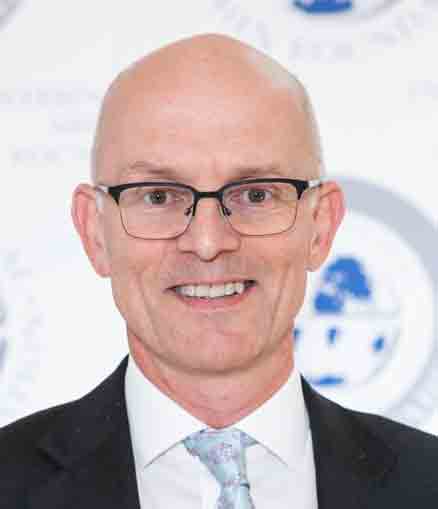
Professor Mark Hull PhD FRCP is a Clinician Scientist and Consultant Gastroenterologist with a research interest in the molecular basis of colorectal carcinogenesis and colorectal cancer prevention. He trained in Biochemistry at the University of Cambridge and Medicine at the University of Oxford. His PhD studies investigated the cell biology of gastric ulcer healing at the University of Nottingham. He has previously been awarded MRC Clinician Scientist and Senior Clinical Fellowships. He has been awarded the Linacre Medal by the Royal College of Physicians of London and the President’s Medal by the British Society of Gastroenterology.
Research interests
Professor Hull’s laboratory uses the full spectrum of translational cancer research methodologies from basic molecular and cell biology through to Phase II biomarker clinical studies and Phase III randomised controlled trials. The broad theme of his research is identification and characterisation of molecular mechanisms of colorectal carcinogenesis that can be utilised as targets for prevention and treatment of colorectal cancer. He studies two main areas of cancer prevention: chemoprevention and lifestyle modification (obesity). The current main focus of the work is characterisation of the anti-colorectal cancer activity of the natural omega-3 polyunsaturated fatty acid eicosapentaenoic acid (EPA). He was Chief Investigator of the seAFOod Polyp Prevention Trial and the EMT trial and currently leads the EMT2 trial of EPA treatment of patients with colorectal cancer liver metastasis (NCT03428477). He has a longstanding focus on fatty acid metabolism and signalling as a target for cancer prevention and treatment. Another main area of interest is the link between obesity, weight loss and colorectal cancer risk.
He collaborates closely with Dr’s Milene Volpato, Louise Coletta and Professor Eva Morris (all Leeds), as well as the Leeds Clinical Trials Unit. External collaborations include Dr Paul Loadman (Institute of Cancer Therapeutics, University of Bradford), Professor Colin Rees (Newcastle University) and the Nottingham Clinical Trials Unit. Work is currently funded by the NIHR and Yorkshire Cancer Research. Professor Hull has previously received funding from MRC, Cancer Research UK and World Cancer Research Fund International.
Sign up to be part of the aspirin community and be the first to receive latest information.
Have something to say about aspirin?

Have something to say about aspirin?
Please fill in the form below and we will contact you with further information.
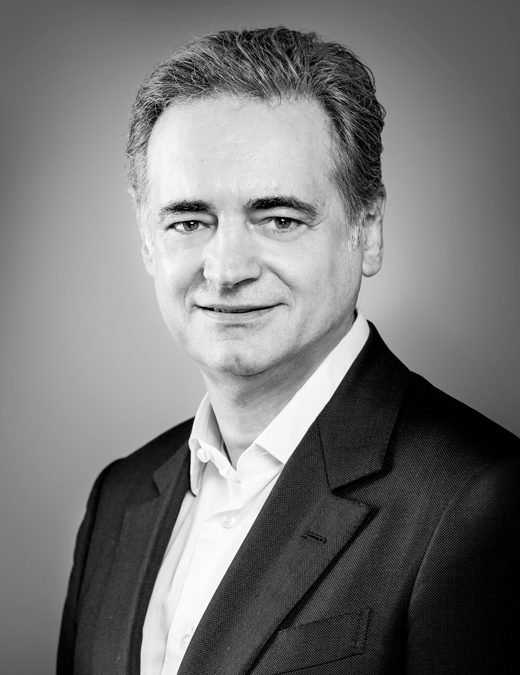
Pierre Amarenco, MD, FAHA, FAAN
Neurology and Vascular Neurology
N/A
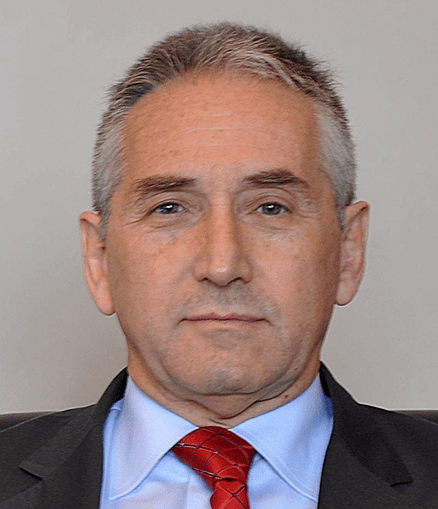

Adjunct Associate Professor DUKE-NUS Graduate Medical School,
Consultant Oncologist Curie Oncology Singapore,
Visiting Consultant National Cancer Centre Singapore.
Medical Oncology
In the past 3 years, I have received consultant fees from Tessa Therapeutics, Aslan Pharmaceuticals, Novartis, and AstraZeneca.
I received grant support for investigator-initiated research from:
I hold shares in: Roche, BMS, AstraZeneca, Incyte, Teva Pharmaceuticals, Trillium Therapeutics, Compugen, Arrowhead pharmaceuticals, Emergex, QuantumDx and Halozyme Therapeutics
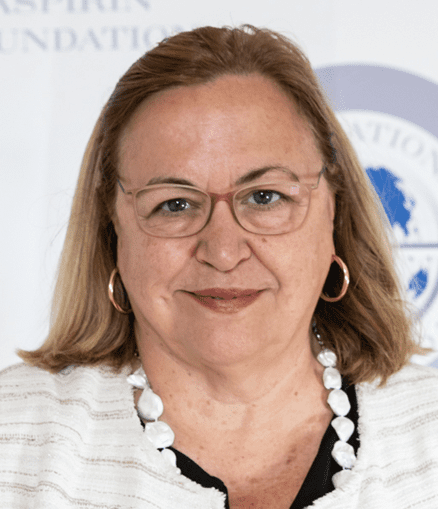
I received consultant and speakers fees from Amgen, AstraZeneca, Bayer, Lilly and Sanofi.

Junbo Ge
Ge Junbo, male, was born in Wulian, Shandong province on Nov. 8, 1962. He is the member of Chinese Academy of Sciences, professor and doctoral supervisor. He received his doctor’s degree of Medicine from German Mayence University in 1993 and now works as the director for Shanghai Institute of Cardiovascular Disease and the Center for Stem Cells and Tissue Engineering, Fudan University. He is also the designate chairman of the Cardiovascular Disease Branch of Chinese Medical Association, council member of the Cardiovascular Angiography and Interventions Association, international consultant of the American Heart Association. In Dec. 2013, he was appointed as the vice president of Tongji University.
Prof. Ge has been engaged in clinical and scientific research work of cardiovascular disease since 1987, and his research area covers the pathogenesis of coronary heart disease, early diagnosis and treatment plan optimization.


AACR Honors Dr. Andrew T. Chan With 2019 AACR-Waun Ki Hong Award
Click here to find the press release.
I received consultant Bayer and Pfizer, Inc.
I received grant support for investigator-initiated research from:

Professor of Medicine, Harvard Medical School; Chief Division of Aging, Brigham and Women’s Hospital; Director of Preventive Cardiology and Director of Massachusetts Veterans Epidemiology Research and Information Center (MAVERIC), VA Boston Healthcare System.
Discipline: Cardiology and Epidemiology
I received consultant and speaker fees Bayer.
I received grant support as a principal investigator or co-investigator for research from the VA, DOD, NIH, Merck and Kowa.
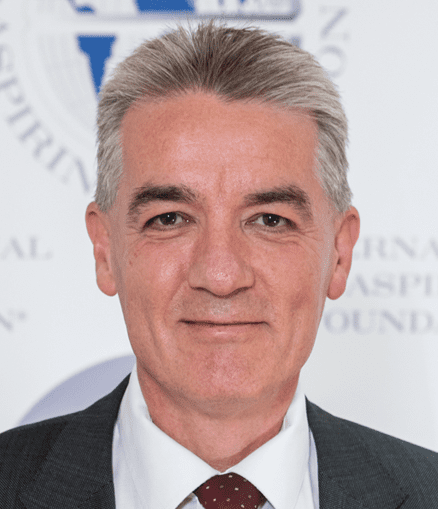
Peter M. Rothwell PhD, MD, FRCP, FMedSci

I received consultant and speakers fees from Acticor Biotech, Amgen, Bayer, GlaxoSmithKline, Tremeau, Zambon.
I received grant support for investigator-initiated research from:
Have something to say about aspirin?
We would like to hear from you and have a chat, and maybe feature you on our podcast. Please fill in the form below and we will contact you with further information.